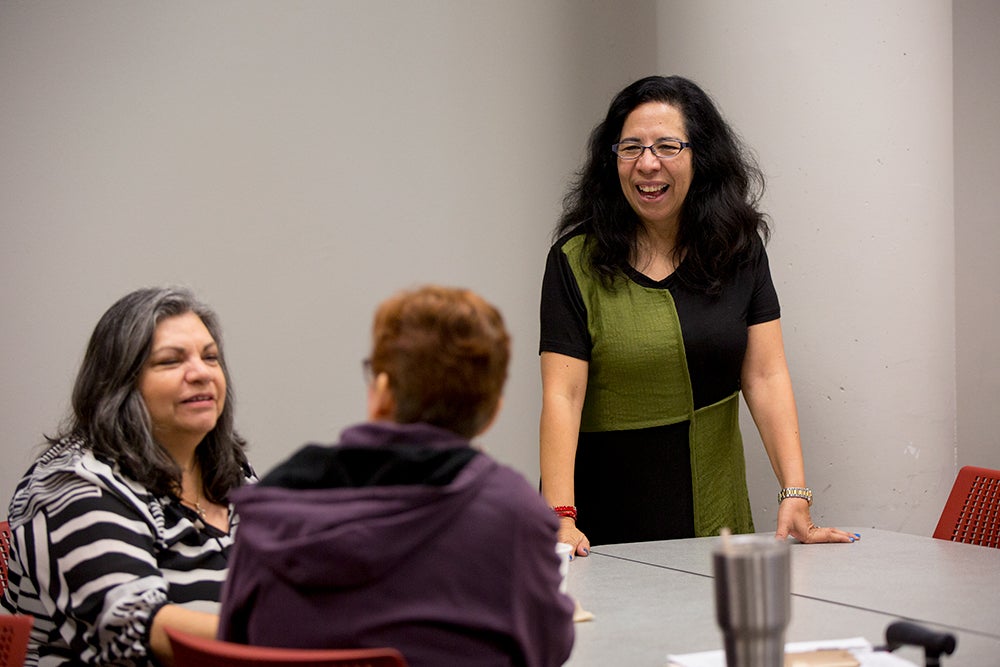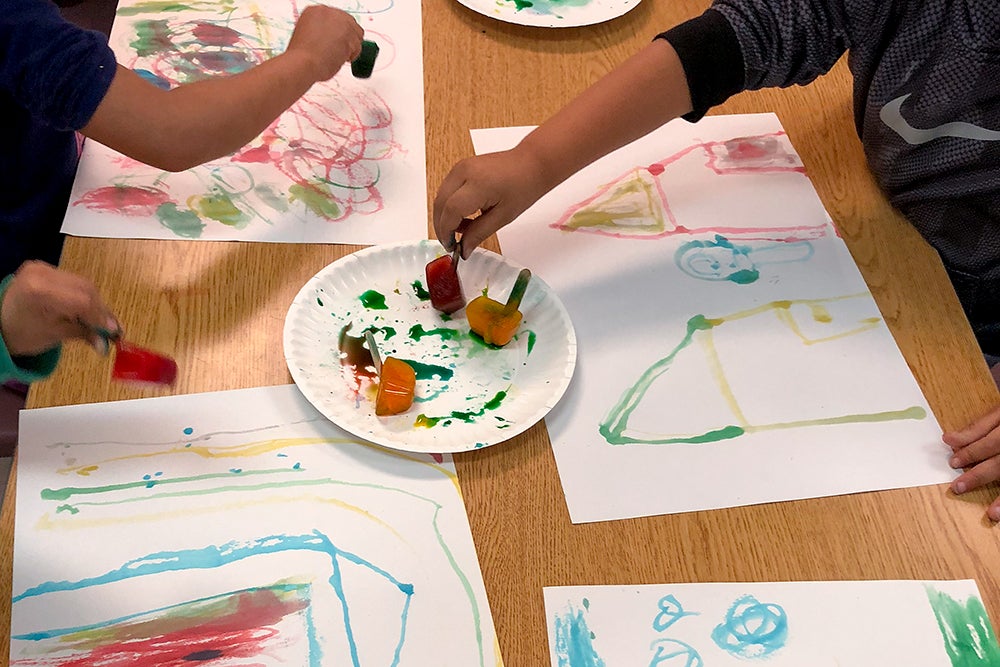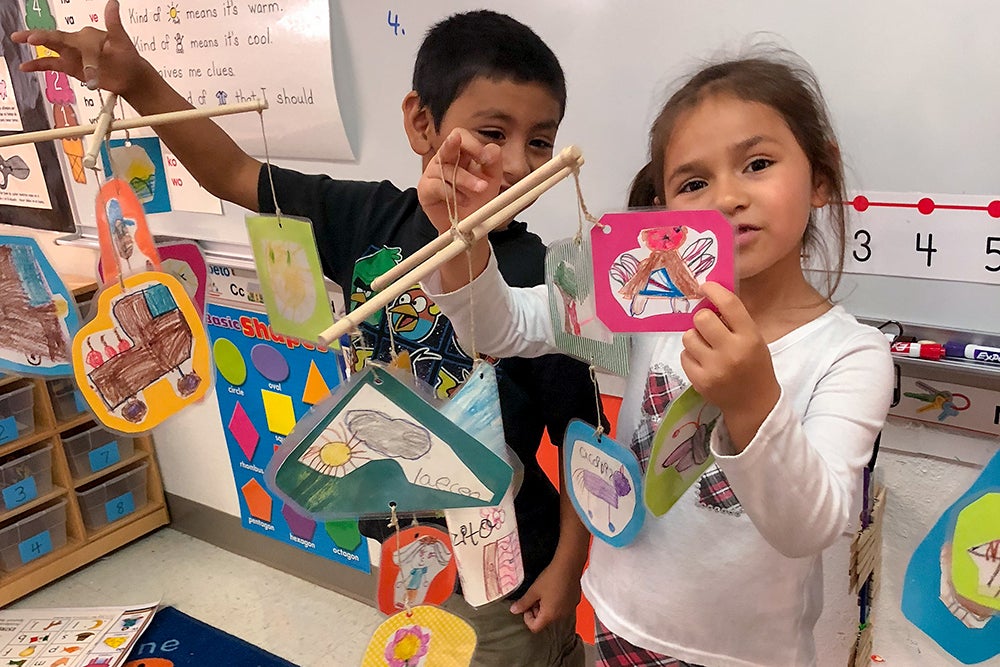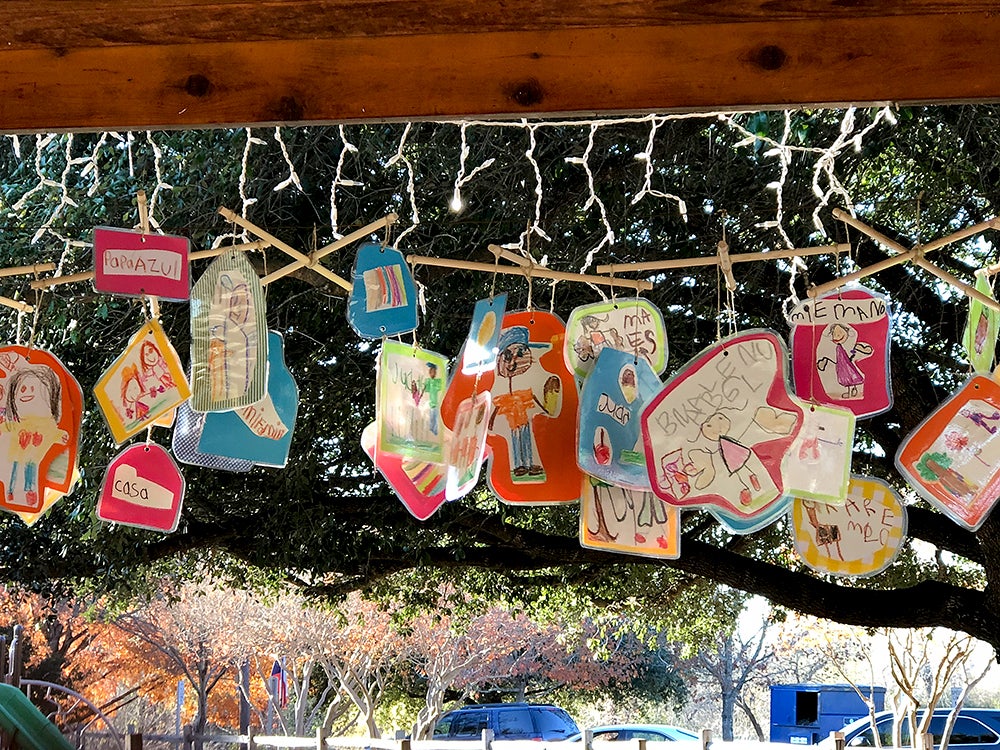Teachers often question when it’s the right time to give children more choice when creating and following through on academic projects. Some believe it’s never too early, and that kids in elementary grades can be encouraged to use agency to take responsibility for their creative work.

Guadalupe Chavez, Ph.D. ’15, attended graduate school as a doctoral student in the Department of Curriculum and Instruction to improve her teaching techniques. “I wanted to strengthen and grow in my teaching practices. I wanted to develop deeper insight into my students’ learning process, while providing a rigorous curriculum along with quality instruction.”
While she was a student, she participated in Proyecto Maestría Collaborative for Teacher Leadership. This program sought to improve the quality and increase the quantity of highly skilled bilingual and ESL teachers in Austin, to promote teacher retention, and to improve the educational outcome for the region’s growing population of English Language Learners.
Why She Began Teaching Bilingual Students
“My own experiences as a second language learner in the U.S. developed my passion for bilingual education,” Chavez says.
In graduate school, Chavez was initially interested in studying identity and agency of students in the classroom, but changed the focus of her research.

“As I reviewed research, I realized I wanted to study classroom teachers––new and experienced.
I wanted to know which teachers understood the importance of students having agency and how they came to that understanding,” says Chavez. “I was interested in finding out if a conscious choice to offer this was in their identity as a teacher or because of their experiences, or both. Agency forms students into critical thinkers and confident learners. Therefore, teachers need to include in the curriculum opportunities for this to happen, and particularly for marginalized students. There are many teachers who do this, but it should be the norm.”
Giving Agency to Kindergarteners
Chavez knows the importance of kindergarten. “I believe kindergarten is the base for student learning, and therefore, important to their future education. For bilingual students it is even more so. Along with academics, they need to recognize their developing biliteracy to develop identity of self, and educators must provide a safe place to support their development of agency.”

Chavez saw an opportunity to give her kindergarten student’s agency, or choice, by allowing them to publish some of their literacy projects. “It was in attending the Heart of Texas Writing Project summer academy that I was challenged to think outside the norm. Not only in the publication as the goal but, in the writing process itself.”
Publishing Student Writing in Community Spaces
Chavez created a lesson plan that required her students to complete a writing project of their narratives. The students worked through the writing process together in pairs or small groups, then had the opportunity to choose the medium their stories would be published in. They voted for hanging paper mobiles.

Her students also created personalized alphabet books and produced electronic informative books on topics of their choosing. Chavez says the inclusion of this approach is beneficial to her students as learners. “I used various mentor texts to guide and help them in their decisions. I take the position of facilitator and only step in when necessary,” says Chavez.
“This teaching method could be challenging for the teacher because we have to give students the freedom to make their own decisions,” she says. “However, once students know the expectations, they become pretty independent. and the results are amazing, both in quality and academically.”
This teaching method has also encouraged her students to take on more responsibility for their work. “It is important,” says Chavez, “as agency builds confidence, children question, search and investigate, and learn to analyze, thereby making conclusions.”
“These students do not wait to be spoon fed. They become risk-takers.”

